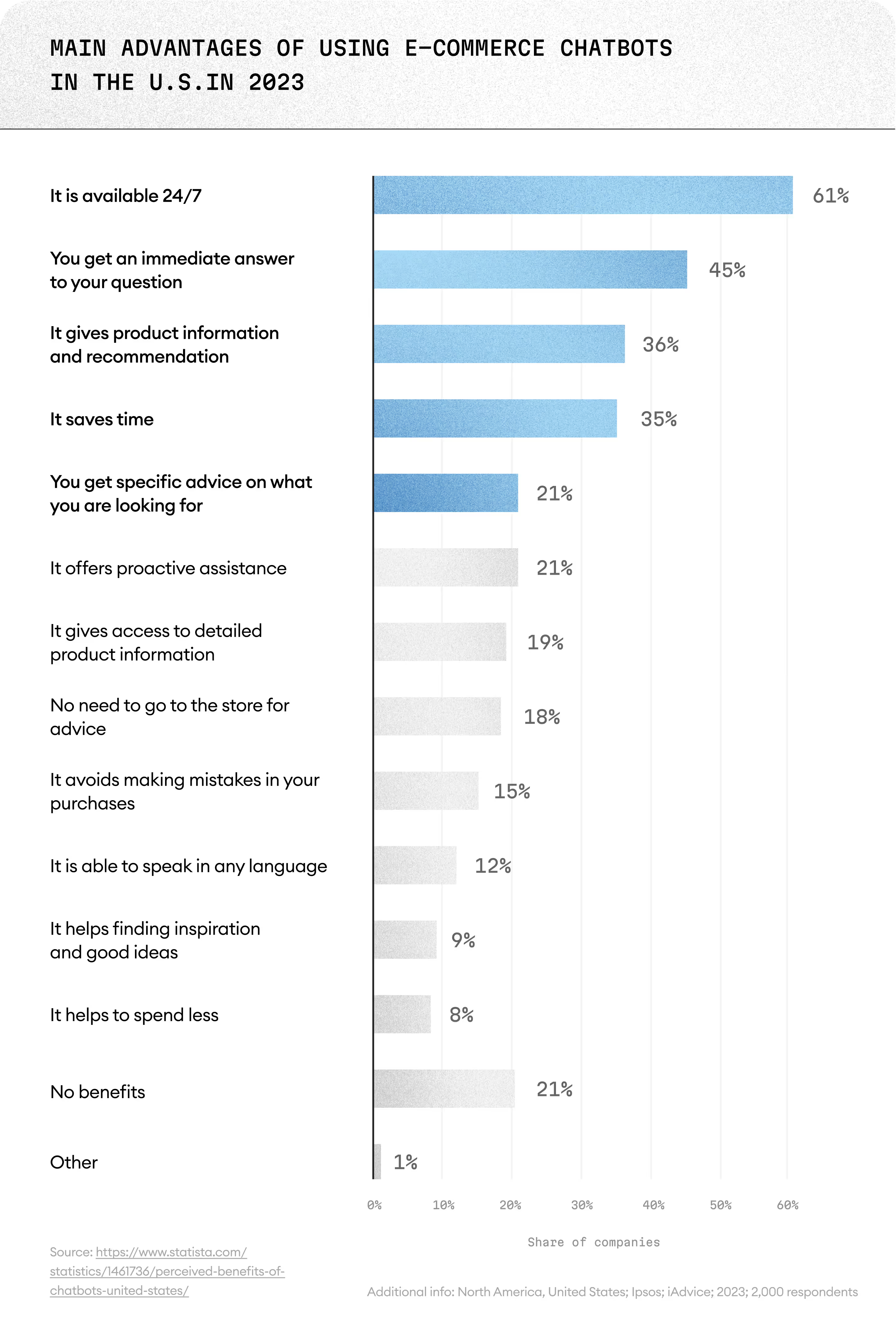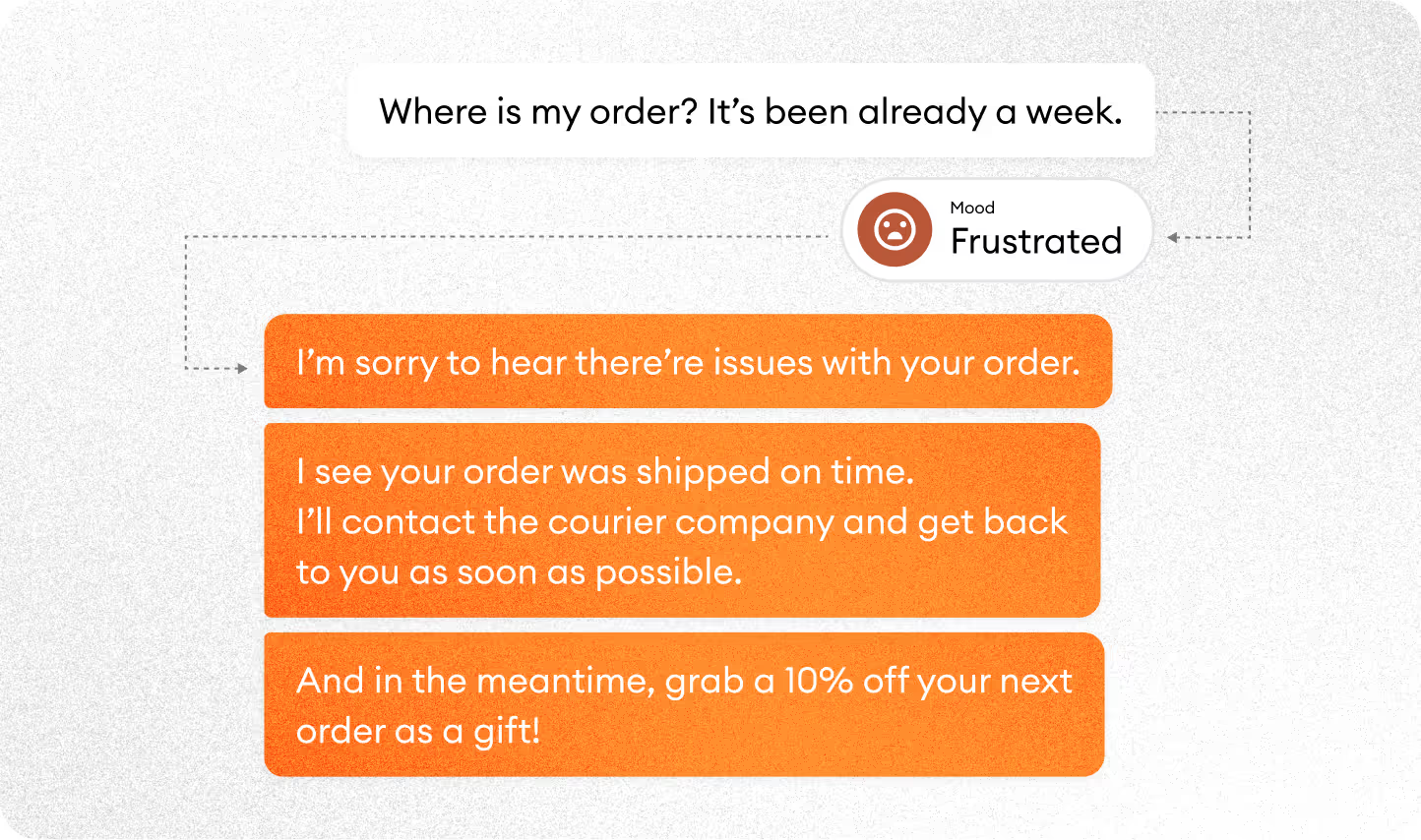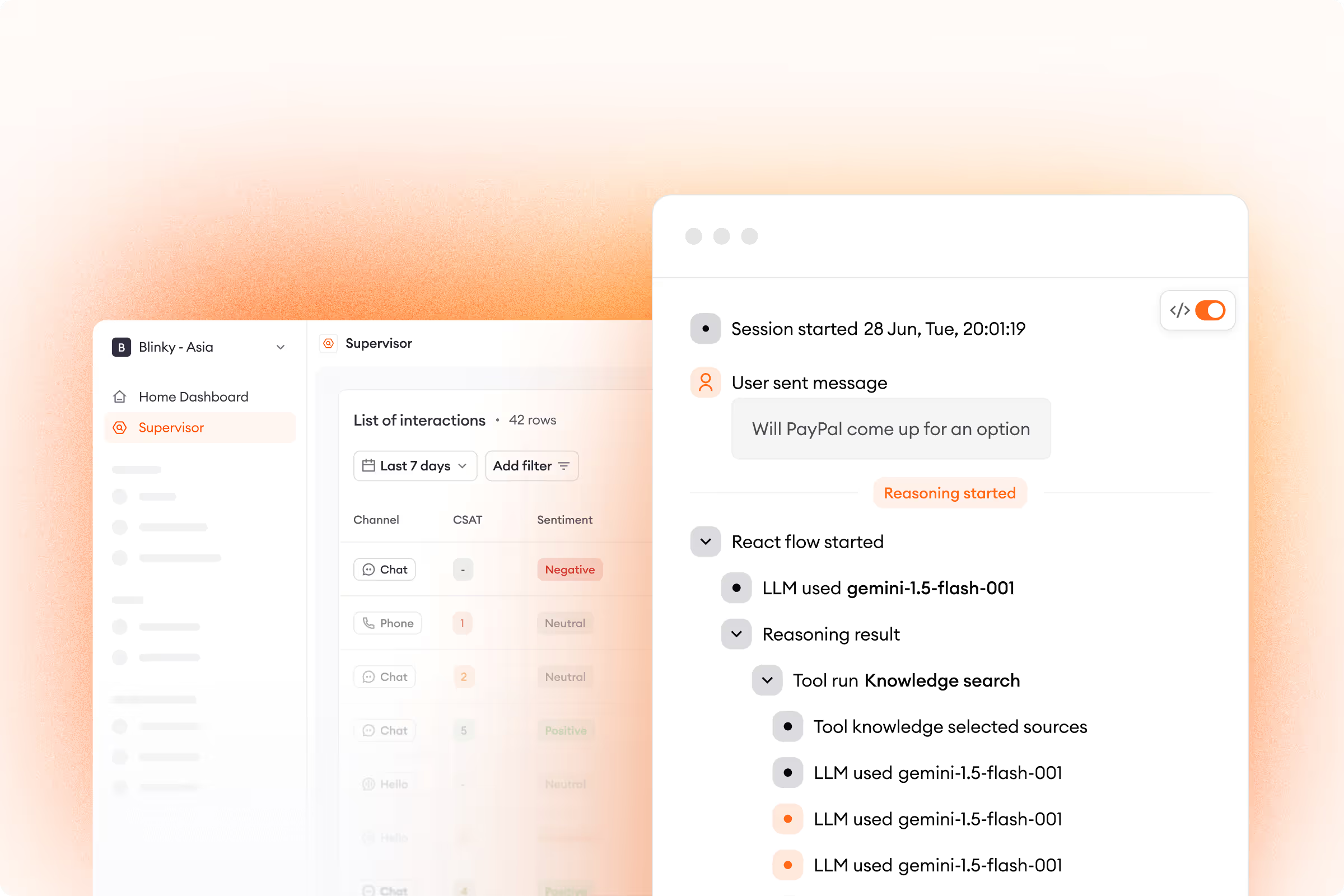High quality service is what the modern online shopper demands from ecommerce. Quick answers, round-the-clock availability, and personalized experience. Every store has to solve this puzzle sooner or later: how do you provide high-quality, consistent customer service across multiple time zones without breaking the bank?
The answer is usually a trio of human agents, rule-based chatbots, and self-service. But now there’s a new option, which you can use to gain an extra advantage before the whole market catches up to it: AI agents.
Automation that feels like human interaction
AI agents represent the next evolution in customer service technology. Unlike their predecessors, these AI-powered assistants go beyond simple, rule-based responses.
They leverage natural language processing and machine learning to understand context, maintain conversational flow, and provide more nuanced, human-like interactions thanks to generative AI at their core.
But what makes AI agents truly stand out is their ability to learn and adapt.
As they engage with more customers, they continuously refine their responses, becoming more accurate and helpful over time. This adaptive capability allows them to handle increasingly complex queries, freeing up human agents to focus on high-value interactions that require empathy and complex problem-solving skills.
It's important to understand that AI agents aren't simply an upgrade to traditional chatbots. Chatbots still have their place in certain business contexts, and agents provide a new capability for innovative ecommerce stores aiming to shake up their customer experience tech stack.
To truly understand the impact of AI agents, let's look at what customers are saying. A recent survey of US citizens revealed some interesting insights into their preferences when it comes to automated customer service:

Source: https://www.statista.com/statistics/1461736/perceived-benefits-of-chatbots-united-states/
- 24/7 availability - 61% of respondents cited round-the-clock service as the primary advantage of chatbots. In a global marketplace, the sun never sets on customer inquiries.
- Instant responses - 45% valued that they provide immediate answers. With conveniences like instant messaging and same-day deliveries being the standard, waiting for customer service is becoming less tolerable.
- Product recommendations - 36% appreciated chatbots for their ability to provide product information and suggestions. This highlights the potential for AI agents to not just solve problems, but to actively contribute to the sales process.
- Time-saving - 35% saw the time-saving aspect as a key benefit. Efficiency is good for business, but customers value it too.
- Personalized assistance - 21% valued the specific advice offered by virtual agents. This points to a growing expectation for personalized shopping experiences.
These statistics paint a clear picture: customers are increasingly open to interacting with chatbots, and they enjoy the convenience they provide.
But standard chatbots are rule-based, pre-programmed, and inflexible. That’s why AI agents are so exciting. They provide all the same benefits that chatbots do, but they’re more powerful, and interacting with them feels like talking to a human.
The evolution of AI in customer service
AI agents can support customer experience teams in new ways thanks to their advanced technological capabilities:
- Contextual understanding - AI agents can maintain context throughout a conversation, providing a more coherent and personalized experience.

- Complex query handling - they can navigate multi-step processes and handle ambiguous questions that would stump a traditional chatbot.

- Emotional intelligence - agents can detect user emotions, allowing for more empathetic responses and seamless handover to human agents when necessary.

- Proactive engagement - rather than simply reacting to queries, virtual agents can proactively reach out to customers, offer assistance, and even suggest products based on browsing behavior.

The proof, as they say, is in the pudding. Let's look at how some forward-thinking brands are using AI agents to transform their customer service:
- Beerwulf - this online beer retailer achieved a 2x return on investment compared to their previous chatbot solution. More impressively, they increased their customer satisfaction score to 85%, demonstrating that AI agents can indeed enhance the customer experience.
- Calendars.com - during their peak season, Calendars.com managed to reduce chat response wait times by a staggering 81%, showing how AI agents can help businesses handle large volumes of inquiries without compromising on service quality.
- True Classic - this clothing brand generated $3 million in support-driven revenue after implementing AI agents, and hit a 98% customer satisfaction score. This shows that AI agents can not only cut costs but also directly contribute to revenue growth.
.avif)
When implemented properly, AI agents can deliver tangible benefits to both businesses and customers.
Chatbot skeptics
Despite the promising results, it's worth noting that not everyone is convinced. The same survey that highlighted the benefits of chatbots also revealed that nearly one in five US citizens saw no advantages to using them in ecommerce.
This skepticism often stems from negative experiences with poorly implemented chatbots or concerns about the loss of human touch in customer service. It's a reminder that while virtual agents offer immense potential, their role isn’t to replace human agents on your team. They’re supporters, not the main heroes of your customer experience department.
Carefully implemented AI agents might be the way to convince chatbot skeptics that speaking to a robot can feel like a human interaction. To increase the chances of this happening, it’s important to:
- Maintaining brand voice - teach AI agents to accurately represent your brand's tone and values by feeding them guidelines.
- Handling complex scenarios - AI agents free up the humans on your team to focus on the most demanding customer inquiries. Make sure you have a seamless handover process.
- Data privacy and security - as AI agents handle more customer data, ensuring robust security measures is critical to make your customers feel safe.
- Continuous improvement - AI agents improve over time, but it’s important to oversee them and make sure they’re going in the right direction.
Preparing your ecommerce business for AI agents
If you’re getting ready to adopt a modern AI agent, how do you make that transition easier? Here are some key considerations:
Start with clear objectives
Define what you want to achieve with AI agents. Is it reducing response times, increasing sales, or improving customer satisfaction?
Choose the right technology
Not all AI agents are created equal. Look for platforms that offer advanced capabilities, easy integration with your existing systems, and robust analytics.
Take a look at your data
The effectiveness of your AI agents will depend largely on the quality of data they're trained on. Ensure your knowledge base is comprehensive and up-to-date.
Plan for human-AI collaboration
Think about how AI agents will work alongside your human customer service team. How will you divide responsibilities and manage handovers?
Measure and iterate
Continuously monitor the performance of your virtual agents and be prepared to make adjustments based on customer feedback and changing needs.

In the end, it's crucial not to lose sight of the value of human interaction. The goal should be to use AI agents to enhance, not replace, the human element of customer service.
AI agents handle routine inquiries and initial customer interactions, freeing up your human agents to focus on complex issues, high-value customers, and situations requiring empathy and nuanced understanding.
Embracing the future of customer service
The rise of AI agents in ecommerce is a response to changing customer expectations and technological advancements. As stores strive to provide round-the-clock, efficient, and personalized service, AI agents are becoming an invaluable tool.
Just remember to approach this tech thoughtfully. The most successful implementations will be those that enhance the customer experience, support human agents, and align closely with the brand's values and voice.
For some stores, it might not be feasible to implement AI agents just yet. But if you have the scale for it, you can gain a significant advantage if you. We can help you decide whether this solution is right for your store – let’s start the conversation.
.avif)

.avif)
.svg)







